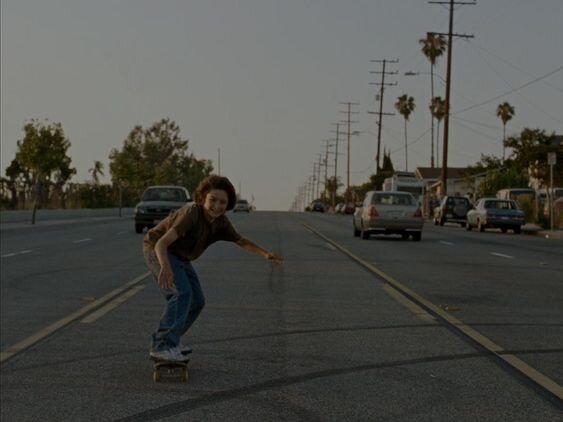Music Scores & Finding Solace in YouTube Comments
As I internalized the cinematic beauty that is Mid90s, I realized just how much power the soundtrack to a movie can hold. I first celebrated this topic while watching “Call Me By Your Name,” a movie with a truly moving and fitting score. From the playful piano instrumentals like “M.A.Y. in the Backyard” to the emotional ballads like “Mystery of Love and Visions of Gideon,” every second of the soundtrack transports you to the streets of northern Italy, drinking apricot juice, laying by the pool with your lover. While many people may go an entire movie without thinking about the score, curated to perfectly match the scenes, I have come to understand it as a love language. The songs, despite the fact that they may be 12 minutes long or entirely ambient, are a way to represent a story without any true picture. You can feel the despondence, the confidence, the confusion, all just by listening.
“Fight Club,” though some may say it is overhyped and pretentiously gate-kept, has a severely underrated score. While the soundtrack has no vocals until the very last scene, it complements the movie in a distinctly beautiful way. One of the best songs throughout the movie is “Medulla Oblongata,” which plays as Tyler takes his hands off of the wheel of his car, urging the nameless narrator to, just for once, let go. The six-minute-long song ranges from synthy chords to a funky bass riff to a raw 808 bridge and back again. As the car veers off the road, flipping over into a ditch, the guitar slowly intensifies in unison with the watcher’s heart rate. The neon blues and glaring yellows blurred by the rain are perfectly paired with the song’s ambiance. However, the true acme of movie scores lies in the very last scene of “Fight Club.” Holding hands, the still-nameless narrator and his love interest, Marla, stare out of a skyscraper’s floor-to-ceiling windows and watch the city’s credit and banking buildings burn to the ground. The song playing in the background? The Pixies’ “Where Is My Mind.” Upon the first watch, this scene moved something in me, whether it was true emotion or just the fact that one of my favorite songs of all time happened to be at the end of my favorite movie of all time. Nonetheless, I’ve yet to meet a movie score that was as fitting, clever, and poignant as that of “Fight Club.” That was, until I watched Mid90s.
Needless to say, I cried three separate times throughout the whole movie. It was almost like seeing my youth from the outside, watching my adolescence from the clouds. Although I live about 3,000 miles from Los Angeles, I felt connected to these 17-year-old kids, listening to Souls of Mischief and Wu-Tang Clan while skating on trespassed property. Jonah Hill revealed that he filmed most of the movie to fit the music he already selected, which explains how the score blends with the cinematography so perfectly. This is especially evident during the scene when the main character skates off of a roof; “Gyöngyhajú lány” by Omega blares as he skates toward the chasm, clearly not at a high enough speed to make it across. The soul-stirring electric guitar resounds in your ear, a powerful ballad entirely in Hungarian. Despite the fact that I can’t understand one word that is sung, I feel an emotive response unlike any other. And, apparently, I wasn’t the only one who felt this way.
As I scrolled through the comments of Morrissey’s “We’ll Let You Know” from Mid90s, I found an interaction that solidified my knowledge of the importance of music in the world we live in.
As I read the comment thread, my computer played through the curious yet depressing lyrics: “How sad are we? / And how sad have we been? / We'll let you know (x2) / Oh, but only if you're really interested.” While the song came to a close, I began to tear up. Eight years ago, a man commented:
Someone else, although it was eight years prior, had the same experience with this song as I did. As I rewatched the scene that “We’ll Let You Know” plays through, I realized how indicative it was of the times we are living in, and wondered if there was someone else out there who thought the same thing. And, I guess, there was.
From the charming, orchestra led ballads in Call Me By Your Name to the Hungarian nationalistic folk songs like “Gyöngyhajú lány” in Mid90s, we as humans find ways to allow them to connect us. Whether it be through the silver screen or near-decade old YouTube comments, these film soundtracks resonate with those keen enough to listen. They play in our head as we drive aimlessly into the night, enjoy a sunny summer morning with our betrothed, or skate our worries away with our newfound hoodlum friends. And, in the end, I think that’s what it’s all about.

